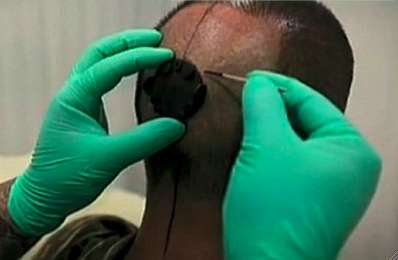
Synthetic THC Found to be Helpful in Treatment of Dementia
Rerolled from a High Times Original Article
Right now, there are 5.7 million Americans living with Alzheimer’s disease. The neurodegenerative condition drastically impacts cognition, affecting memory, coordination, and language. People with Alzheimer’s also suffer from a range of other symptoms related to dementia, including agitation, anxiety, insomnia, depression and weight problems—conditions that significantly deteriorate their quality of life.
Unfortunately, treatments for those conditions are often ineffective, and sometimes harmful. But researchers at the University of Toronto think a synthetic THC drug called nabilone could be a safer, more effective alternative.
Researchers Say Synthetic THC Can Improve Quality of Life for People With Alzheimer’s
After a successful initial trial involving 39 people with moderate to severe Alzheimer’s, University of Toronto researchers are eager to learn more about how cannabinoids can treat dementia.
The study was conducted by UT professor of psychiatry and pharmacology-toxicology Krista Lanctot. And it’s the first study ever to look at the effects of a synthetic form of THC on Alzheimer’s-related agitation.
That synthetic form of THC is called nabilone and it comes in a capsule. It’s a popular form of the cannabinoid among medical researchers, due to its consistency and how easy it is to administer. And while it’s technically a synthetic cannabinoid, it’s not the same as the synthetic street drug form of cannabis called K2 or Spice.
According to reports, nabilone presents a milder version of the calming, euphoric effects of natural cannabis. And that makes it a very effective therapy for nausea, vomiting and now, say researchers, reducing agitation in people with dementia.
“We’re excited because we think this opens a whole new door for cannabinoids as a group for treating agitation in Alzheimer’s disease,” said Professor Lanctot.
Agitation was the focus of the study, but researchers also looked at other symptoms. According to both caregiver reports and clinical tests, the synthetic THC nabilone improved appetite and slowed weight loss. It also reduced pain.
Professor Says Cognitive Side Effects of Cannabis Don’t Matter For Alzheimer’s Patients
Often, people with Alzheimer’s and other people with dementia are prescribed antipsychotic drugs for agitation, pain, and other related conditions. But those pharmaceuticals pose a risk for dementia patients. Not only are they inconsistently effective, they can cause harmful and potentially lethal side effects.
Hence researchers’ interest in safer, more effective alternatives. Cannabinoids could offer one of the safest options. Not only did the synthetic THC nabilone produce positive outcomes during the trial, researchers also found that its cognitive side effects—in other words, a high—weren’t really a factor for Alzheimer’s patients, since they already have memory and other cognitive problems, said Lanctot.
Nabilone, for its part, already has a number of studies attesting to its effectiveness as a therapeutic treatment for pain, nausea, and vomiting. The U.S. FDA has approved nabilone for chemotherapy patients, and doctors commonly prescribe the drug in Canada. But this is the first time a clinical trial has looked at the drug’s effect on Alzheimer’s patients.
Still, nabilone is a synthetic form of THC. It only mimics the structure that naturally occurs in plants. And according to researchers, the difference is important, and means botanical cannabis won’t produce the same results as the study.
The post Synthetic THC Found to be Helpful in Treatment of Dementia appeared first on High Times.
Rerolled from High Times